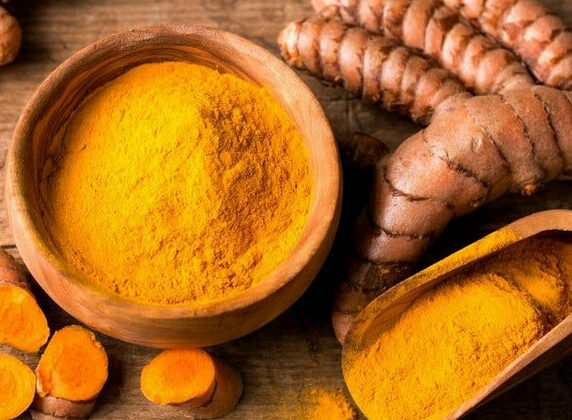Turmeric is a powerful spice that has been used for thousands of years in traditional medicine. It has numerous health benefits, including anti-inflammatory and antioxidant properties. Here are 10 health benefits of turmeric that you may not have known about.
Turmeric Can Help Fight Inflammation
Turmeric contains curcumin, a compound that has anti-inflammatory properties. Studies have shown regular intake of turmeric may help reduce inflammation in the body. Inflammation in the body can play a role in many different diseases and chronic conditions, including:
- heart disease
- kidney disease
- metabolic syndrome
- Some autoimmune conditions
- Certain types of cancer
- Arthritis
Less inflammation in the body helps your body function optimally and feel better.
Lower Blood Sugar Levels
Turmeric may help lower blood sugar levels, which can be beneficial for people with diabetes. Studies have shown that it can help reduce fasting blood sugar levels and improve insulin sensitivity, which can help prevent or manage diabetes. The anti-inflammatory compounds in turmeric may also help treat conditions commonly associated with diabetes, such as neuropathy.
May Help Improve Brain Function And Prevent Dementia
It has been shown that both inflammation and cumulative oxidative damage play a role in the development of some types of dementia, like Alzheimer’s disease. Compounds in turmeric have been linked to beneficial effects on both inflammation and oxidative damage. There is also limited evidence that indicates that the curcumin in turmeric is able to cross the blood-brain barrier.
While treatment exits for some of its symptoms, there is no cure for Alzheimer’s yet. That’s why preventing it from occurring in the first place is so important. The antioxidants and anti-inflammatory compounds in turmeric may help prevent the inflammation and damage associated with Alzheimer’s from occurring in the brain. Also, patients with dementia can develop protein tangles in the brain called amyloid plaques. Studies show that curcumin may be able to help clear these plaques.
Other studies have also indicated that turmeric supplementation can increase memory function.
Whether curcumin can slow or even reverse the progression of Alzheimer’s disease and other forms of dementia remains to be seen. Current evidence shows that there is potential but further research on the subject is needed. This is one of the most intriguing potential health benefits of turmeric I will have to do more reading on.
Reduce Your Risk of Heart Disease
Curcumin may help reverse many steps in the heart disease process, including inflammation and oxidative processes that lead to heart damage. However the main benefit of curcumin that research suggests is that it may improve the functions of the lining of your blood vessels. Dysfunction of the lining of the blood vessels has been linked to issues with blood pressure and blood clotting, which are directly linked to heart disease.
Help Reduce Pain
Arthritis and other joint-related ailments are fairly common in Western countries. Turmeric can help treat the inflammation and pain that often accompanies these conditions. Many studies, such as this one, show that curcumin can be used to treat the symptoms of arthritis and is more effective than anti-inflammatory drugs for some patients.
Can Help Fight Cancer
Curcumin has been shown to be beneficial for cancer patients. Various studies have suggested that it may reduce cancer growth and metastasis, aid in the death of cancer cells, and/or prevent some types of cancer from forming when taken regularly.
Aids In Digestion
Traditional herbal and Ayurvedic medicine has often used turmeric to treat a variety of digestive issues, including poor digestion, acid reflux, and abdominal pain. Turmeric may also aid in digestion by increasing the production of bile, which helps break down fats.
Studies have also shown that its anti-inflammatory properties may help reduce the symptoms of irritable bowel syndrome and inflammatory bowel conditions.
Boosts Immunity
Turmeric, especially raw turmeric has antioxidants and nutrients that may help boost the immune system. Plus, it is also a prebiotic that can support healthy gut bacteria, which has been linked to increased immunity.
This spice has also been found to be anti-fungal and anti-viral, which, combined with its other beneficial properties, would make it difficult for pathogens to thrive.
May Lower Cholesterol
Oxidative stress and inflammation in the body has also been linked to high levels of bad cholesterol. The curcumin in turmeric can help to reduce the levels of bad cholesterol in the body and reduce inflammation and oxidative damage in your body. One study I found suggests that turmeric is just as effective at doing these things as some statin drugs.
Turmeric Boosts Skin Health
Turmeric’s anti-inflammatory and antioxidant properties can health boost your skin’s health and may prevent the damage that causes wrinkles and other signs of aging. The powerful nutrients in turmeric may also help promote wound healing, reduce the appearance of acne scars and leave your skin with a nice healthy glow.
How You Can Get The Health Benefits Of Turmeric
What is the best way to take turmeric? The simplest way to get the most out of turmeric is to take a turmeric curcumin supplement. Although using turmeric frequently in your cooking is a great way to take advantage of the spice, turmeric only contains a limited amount of absorbable curcumin in the edible spice form. Therefore, you may see more of the health benefits of turmeric from taking a curcumin supplement.
I find that taking an organic turmeric supplement with black pepper is enough for me to notice many of these health benefits. I take mine every night after dinner.
If you prefer to add turmeric to your foods, there are many delicious curry recipes and ways to make turmeric tea or golden milk available with a simple Google search.
Did you enjoy this post about the health benefits of turmeric? Please leave me a comment below!

